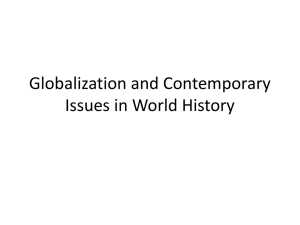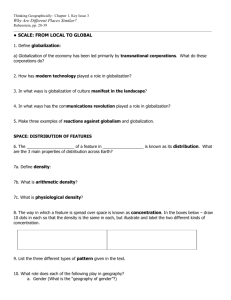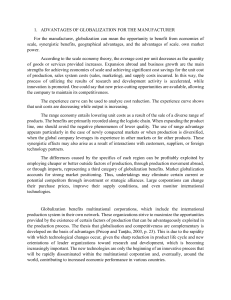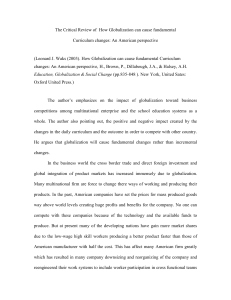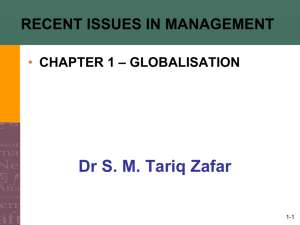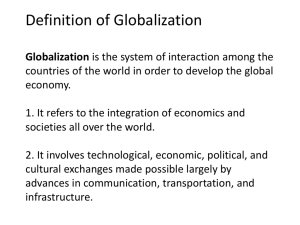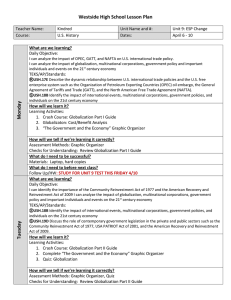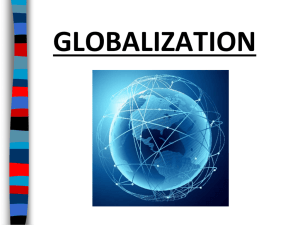Globalization - Western Kentucky University
advertisement
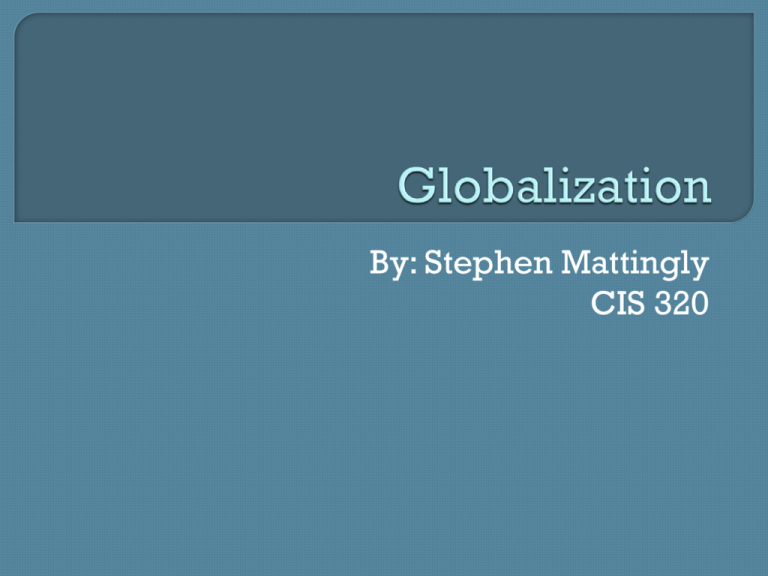
By: Stephen Mattingly CIS 320 What are a few of the technologies that have led to globalization and how can corporations use them to their advantage? What it’s not: • Not a single invention • No single inventor What it is: • A culmination of several techs dealing with… Mass media International commerce Modern Travel Because we have developed ways to preserve food and keep it free from contaminants, we are able to enjoy any food we want anywhere in the world at any time in the year. Because monetary records are now kept almost entirely electronically, and because many business transactions take place online, stock exchange and any other type of business can be conducted on an international scale between citizens of any combination of nations. Because of the development of mass media, people can share ideas/information instantaneously from across the world. Driving force – business “The goal of IT departments of multinational companies can be simply stated: To create globally integrated information infrastructures that electronically link their entire supply chains - their sales, production, and delivery processes - into one seamless flow of information across national borders and time zones, with both real-time and store-and-forward access to information from any location.” (David O. Stephens, The Globalization of Information Technology in Multinational Corporations) Assists in nearly every step of global business • Intl. communication (internet, digital phones) allow businesspeople to hold conversations from different continents • Modern record keeping programs (ex. Microsoft Excel) aid accountants and make the process of logging business transactions easier, among other uses • Website-building programs (ex. Dreamweaver, Microsoft Expression Web) assist corporations to market themselves businesses can market themselves on the internet and attract potential customers. Nationalism: a sense of national consciousness exalting one nation above all others and placing primary emphasis on promotion of its culture and interests as opposed to those of other nations. (Webster-Merriam Dictionary) Painting: Liberty Leading the People by Eugène Delacroix Historically, when a culture group’s values are threatened, they will always fight back. • Globalization (marketing/selling cultural goods)may be seen as diluting a culture. Fixed borders that help to define a nation (through culture) are rendered weak, thanks to globalization. Source: Interview with Daniel Reader, WKU Professor, Department of Geography Driven primarily by commerce, information technologies made globalization (the emergence of a closely-connected worldwide community) possible via: • Mass communication • Electronic data storage/organization • International transportation (goods, people, etc) http://www.merriamwebster.com/dictionary/nationalism Stephens, David O., The Globalization of Information Technology in Multinational Corporations, published by Information Management Journal on July 1, 1999, http://www.allbusiness.com/technology/internettechnology/376381-1.html Reader, Daniel. Western Kentucky University Professor, Department of Geography, Personal Interview conducted on November 6, 2009
